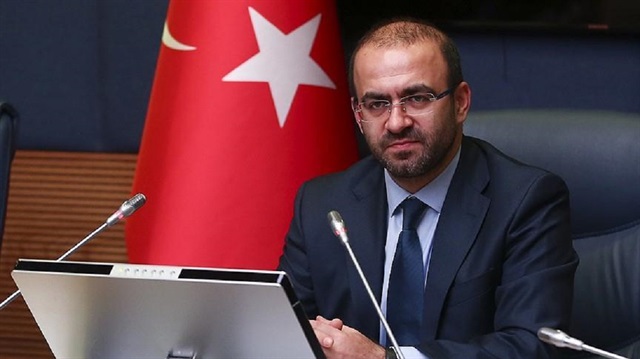
Foreign Affairs Commission head Taha Özhan asks of PKK/PYD: How can US try to use one group of terrorists to fight another?
In a new online piece, a leading Turkish parliamentarian and academic explores the controversial U.S. decision to provide heavy arms to the terrorist PKK/PYD to fight Daesh in Syria.
Turkey considers the PYD to be the Syrian offshoot of the PKK, a terrorist organization banned by the U.S., Turkey, and the EU. But Washington has said the groups act as its partner in the fight against Daesh in northern Syria.
Since the PKK resumed its armed campaign against Turkey in July 2015, it has been responsible for the deaths of some 1,200 Turkish security personnel and civilians, including a number of women and children.
"How is it possible that Daesh lives on despite the fact that it can bring together Iran and Israel, the U.S. and Russia, the Gulf and Iraq?" writes Taha Ozhan, the head of parliament’s Foreign Affairs Commission, in a piece for the Middle East Eye website titled, “Another killer solution for Syria: Using one group of terrorists to fight another?”
"Russia, the U.S., Iran, the Assad regime, Gulf states, France, Syria’s neighbours, Canada, the EU, Australia -- while over four years of ‘combat’ none of these countries has been able to cleanse Daesh from Syria and Iraq, the group was defeated and eradicated everywhere else.
"How is it possible that Daesh lives on despite the fact that it can bring together Iran and Israel, U.S. and Russia, the Gulf and Iraq?
"Turkey crushed the group in four months [in Operation Euphrates Shield, late 2016 to early 2017]. Yet a grand and unlikely coalition of nations that fought each other in the 20th century has so far failed to eliminate Daesh in its home territory," Ozhan writes.
"How is it possible that Daesh lives on despite the fact that it can bring together Iran and Israel, the U.S. and Russia, the Gulf and Iraq -- and revive the ‘end of history’ thesis? How can such a coalition -- one unimaginable in the 20th century -- fail to defeat a terrorist organisation?
"There can only be two possibilities ... Either Daesh is militarily stronger than the coalition or there is a problem in the way the coalition is fighting.
-‘Miraculous element’
"A miraculous element in this coalition is the PYD. The PYD is an anachronistic Marxist organisation that emerged in late 2011, the same year as Daesh. It is the Syrian franchise of the PKK terrorist group that has murdered tens of thousands of people in Turkey.
"While the PYD itself admits that it is the extension of PKK -- which Turkey, the U.S. and the EU define as a terrorist organisation -- the only capital that denies links between the PYD and PKK is Washington. In other words, Washington is telling the world to disregard a group that is on its own foreign terrorist list.
"To make matters worse, we are told to believe that the PYD represents the entire Kurdish population in Syria. A blind eye and a deaf ear are turned in order to work with the PYD, a tactic that is used only because the U.S. has been unable to develop a policy for Syria. This is a trend which continues under the new [Trump] administration."
He adds, "With the rise of such a useful and comfortable an enemy as Daesh, the death of geopolitics in Syria might as well have been announced. Daesh took the limelight from the Syrian tragedy and the crisis in the Middle East and fighting the group became a free market product anyone could buy. It's a shift that has legitimised and camouflaged all sorts of crimes and cruelties."
He continues, "Everybody is curious to know how Turkey will react if the PYD is given heavy arms. But this is not a question Turkey needs to answer. Turkey will fight terror after -- or if -- the PYD-PKK is equipped with heavy arms in the same way it has fought it before.
"The real question is whether the delusion of fighting terrorism by using other terrorists offers any semblance of a solution. Of course, for adherents of a military approach, these questions may seem worthless."
Ozhan holds a Ph.D. in Politics and International Relations. His latest book is Turkey and the Crisis of Sykes-Picot Order (2015).
Hello, the comments you share on our site are a valuable resource for other users. Please respect other users and different opinions. Do not use rude, offensive, derogatory, or discriminatory language.
The floor is all yours.








